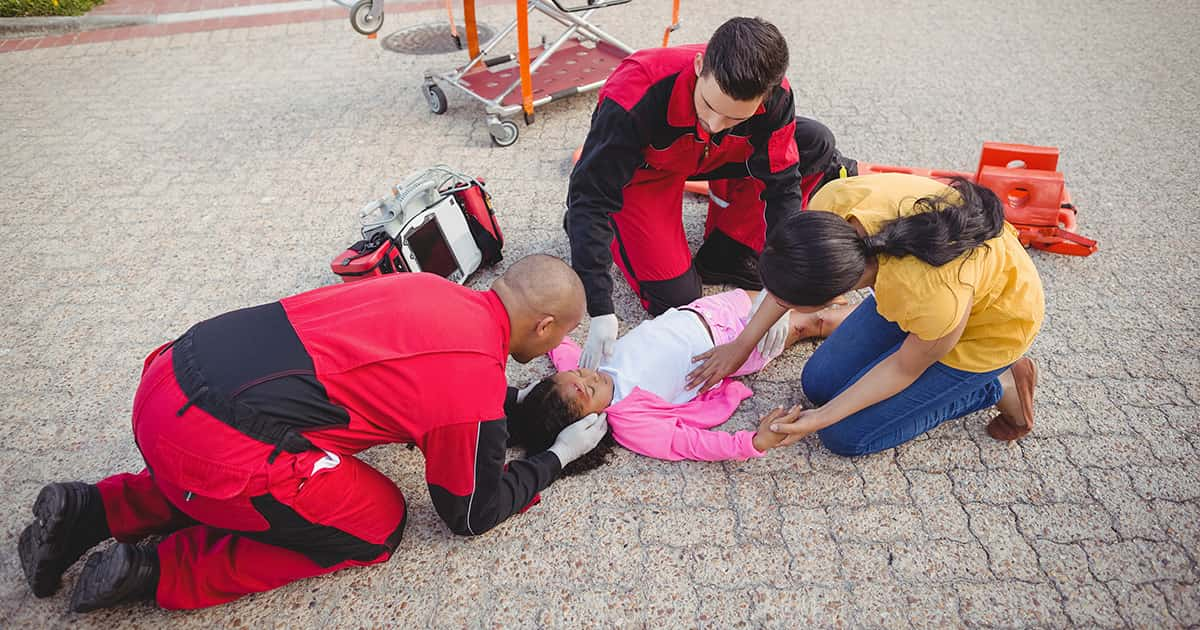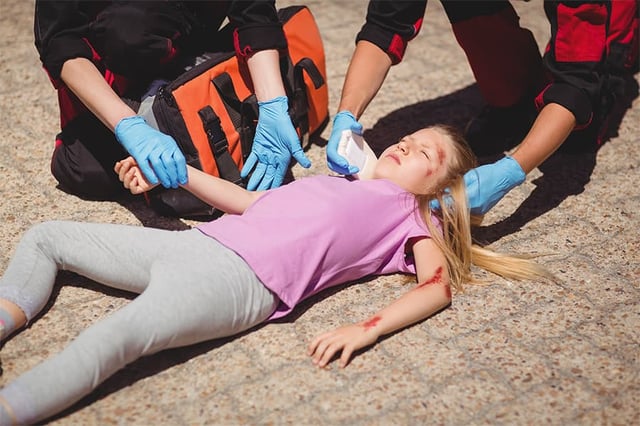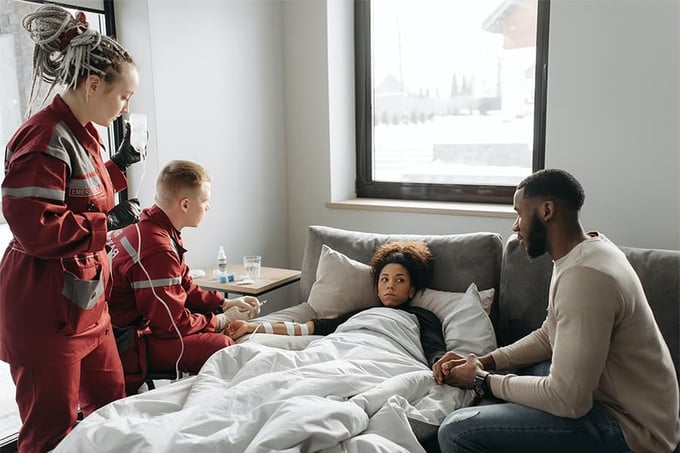Pulsara Around the World - February 2026
January Recap The start of 2026 was on the slow side for our events schedule, with our team heading to the Florida Fire & EMS Conference, the...
3 min read
 Brandon Means
:
May 14, 2021
Brandon Means
:
May 14, 2021

As a medic, you never know what your next call could be. Of all healthcare providers, your job is often the most unpredictable. Some types of calls are much more straightforward than others...and sometimes, the ones you might have less experience on—such as pediatric or OB-GYN calls—can be nerve-wracking. How do you turn the calls that scare you into calls you feel confident heading into?
Pulsara's Vice President - Medical OPS, Brandon Means, teamed up with EMS1 to produce an original video series of critical paramedicine tips and techniques, called Progressive Paramedic. In this week's video and blog post, we throwback to Brandon's paramedic days as he reviews the three reasons why it's important to be a lifelong learner in EMS. Check it out below!
What kind of call scares you? And when I say scares you, I'm not talking about a close call on the highway working a wreck scene or being involved in an active shooter scenario. I'm talking about those calls that evoke a little bit of fear and emotion, more so than your run-of-the-mill ground-level fall or inter-facility transfer. We hear it over and over: "Oh, kids scare me," or, "OB-GYN calls scare me." I use the pediatric call as an example because that was me for many years.
Why are there certain calls that evoke more fear than other calls? And why does it have to be this way?
Unless you worked full-time in pediatric transport or a specialty care transport, it does make sense that some calls are going to scare us more than others or make us more nervous. And it's simply because we haven't been exposed to them very often.

So what's the solution? Well, it's pretty simple. We focus on these areas with supplemental learning opportunities. Remember when you got out of EMT school or paramedic school and you thought you knew it all? Well, think between then and now on how much you've learned since then. This is why it's so important to be a lifelong learner.
Here are three reasons why it's important for medics to never stop learning.
Only in the last few years have we truly begun to embrace the science to a point that it affects our clinical practice in EMS. So where are some areas that we've seen the changing science affect our clinical practice? Look around. You'll see many services not transporting on backboards anymore. Why? Because there was no evidence to support it. We don't give everyone high-flow oxygen anymore. Why? Because the science doesn't support it. These, along with other examples, are perfect reasons to evolve your practice with the science.
There was a study back in 2010 from the University of California Irvine that showed that the more you learn, the healthier your brain is. Just as we need to work out our muscles or our cardiovascular system, it's equally important to maintain good brain health, especially in EMS. We are used to getting by on little sleep—sometimes poor eating habits—and other variables that can affect us, so taking care of our brain is very important.
Now, this is probably the most important reason to keep learning. But in order to be an expert at something, you have to make an effort to learn. Continue your education after paramedic school. Keep up on the latest science. You owe it to your patients as a provider and a patient advocate.

When someone you care about is having an emergency, who do you want to respond? Do you want the crew who may be scared because they haven't studied enough on that subject? Or do you want the provider who's confident and knowledgeable? Knowledge builds confidence, and we have to be confident providers even on the scariest of calls.
So remember, it's up to each of us to be self-directed learners. It's part of being responsible, and it's part of being a professional.
Editor's Note: This post was originally published in June of 2017 in collaboration with EMS1 and has been refreshed and updated for accuracy and comprehensiveness.
![]()
Why are leading EMS teams choosing Pulsara? EMS and hospital staff (from rural to urban) can instantly and seamlessly communicate event-based patient information, including one-tap team notifications, image sharing, audio/video calls, ETA alerts, etc. right from the Pulsara app. Learn more here.

January Recap The start of 2026 was on the slow side for our events schedule, with our team heading to the Florida Fire & EMS Conference, the...

Recent research shows how Pulsara was successfully leveraged to connect more than 6,000 COVID-19 patients to monoclonal antibody infusion centers via...

At Pulsara, it's our privilege to help serve the people who serve people, and we're always excited to see what they're up to. From large-scale...